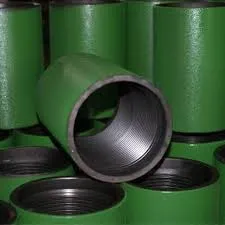- Afrikaans
- Albanian
- Amharic
- Arabic
- Armenian
- Azerbaijani
- Basque
- Belarusian
- Bengali
- Bosnian
- Bulgarian
- Catalan
- Cebuano
- Corsican
- Croatian
- Czech
- Danish
- Dutch
- English
- Esperanto
- Estonian
- Finnish
- French
- Frisian
- Galician
- Georgian
- German
- Greek
- Gujarati
- Haitian Creole
- hausa
- hawaiian
- Hebrew
- Hindi
- Miao
- Hungarian
- Icelandic
- igbo
- Indonesian
- irish
- Italian
- Japanese
- Javanese
- Kannada
- kazakh
- Khmer
- Rwandese
- Korean
- Kurdish
- Kyrgyz
- Lao
- Latin
- Latvian
- Lithuanian
- Luxembourgish
- Macedonian
- Malgashi
- Malay
- Malayalam
- Maltese
- Maori
- Marathi
- Mongolian
- Myanmar
- Nepali
- Norwegian
- Norwegian
- Occitan
- Pashto
- Persian
- Polish
- Portuguese
- Punjabi
- Romanian
- Russian
- Samoan
- Scottish Gaelic
- Serbian
- Sesotho
- Shona
- Sindhi
- Sinhala
- Slovak
- Slovenian
- Somali
- Spanish
- Sundanese
- Swahili
- Swedish
- Tagalog
- Tajik
- Tamil
- Tatar
- Telugu
- Thai
- Turkish
- Turkmen
- Ukrainian
- Urdu
- Uighur
- Uzbek
- Vietnamese
- Welsh
- Bantu
- Yiddish
- Yoruba
- Zulu
steel couplings for pipe
An Overview of Steel Couplings for Pipe Systems
Steel couplings play a vital role in the construction and maintenance of piping systems across various industries. These essential components are used to connect two pipe segments, allowing for the transmission of fluids or gases while maintaining structural integrity. In this article, we will explore the types, benefits, applications, and installation considerations of steel couplings in pipe systems.
Types of Steel Couplings
Steel couplings come in several varieties, each designed to serve specific purposes
1. Threaded Couplings These couplings feature internal threads that allow for easy attachment to threaded pipe ends. They are commonly used in low-pressure applications. Their ease of installation and ability to be disassembled makes them a popular choice for temporary setups.
2. Welded Couplings These are connected to the pipe ends through welding, creating a permanent bond that offers high strength and durability. Welded couplings are often used in high-pressure applications where leak prevention is crucial.
3. Screw-On Couplings These are designed for ease of use, providing a quick and reliable way to connect pipes without the need for welding or special tools.
4. Flexible Couplings These couplings accommodate slight misalignments between pipe sections, making them ideal for situations where pipes may not be perfectly aligned due to settling or thermal expansion.
Benefits of Using Steel Couplings
Steel couplings offer numerous advantages for piping systems. Some of the key benefits include
- Durability Steel is known for its strength and resistance to corrosion, making steel couplings suitable for both indoor and outdoor applications. They can withstand extreme temperatures and pressures, ensuring a reliable connection over time.
- Versatility Available in various sizes and configurations, steel couplings can be utilized in a wide range of piping systems, whether for residential plumbing, industrial machinery, or large-scale infrastructure projects.
- Cost-Effectiveness While the initial investment may be higher than plastic alternatives, the long lifespan and reduced maintenance needs of steel couplings often result in lower overall costs.
- Safety Steel couplings can maintain a secure fit under high pressure, significantly reducing the risk of leaks and failures, which is especially vital in hazardous fluid transport systems
.steel couplings for pipe

Applications of Steel Couplings
Steel couplings are widely used in numerous industries, including
- Oil and Gas These couplings are critical for transporting crude oil, natural gas, and other petroleum products. Their strength ensures safe operation under high pressure and extreme conditions.
- Water and Wastewater Treatment Steel couplings are used in municipal water systems and wastewater facilities to connect pipes that handle potable water as well as sewage and industrial waste.
- Manufacturing and Mining In these industries, steel couplings are essential for piping that transfers materials and fluids necessary for production and resource extraction.
- HVAC Systems Steel couplings connect components in heating, ventilation, and air conditioning systems, allowing for efficient and reliable climate control in buildings.
Installation Considerations
When installing steel couplings, several factors should be considered to ensure optimal performance
- Compatibility Always ensure the type and size of the coupling match the pipes being connected. Mismatched couplings can compromise system integrity.
- Proper Alignment Pipes must be aligned correctly to prevent undue stress on the coupling, which could lead to failure over time.
- Corrosion Protection Depending on the environment, consider adding protective coatings or using corrosion-resistant materials to enhance longevity.
- Follow Guidelines Always adhere to industry standards and manufacturer guidelines during the installation process to ensure safety and performance.
Conclusion
Steel couplings are indispensable components in modern piping systems, offering strength, durability, and versatility. Their wide range of applications and benefits make them a preferred choice in various industries. With proper installation and maintenance, steel couplings can ensure the seamless transportation of fluids and gases, contributing to the efficiency and safety of operations. As technology continues to advance, the innovation in steel coupling designs will likely enhance their capabilities, further solidifying their essential role in infrastructure development.
-
Tubing Pup Joints: Essential Components for Oil and Gas OperationsNewsJul.10,2025
-
Pup Joints: Essential Components for Reliable Drilling OperationsNewsJul.10,2025
-
Pipe Couplings: Connecting Your World EfficientlyNewsJul.10,2025
-
Mastering Oilfield Operations with Quality Tubing and CasingNewsJul.10,2025
-
High-Quality Casing Couplings for Every NeedNewsJul.10,2025
-
Boost Your Drilling Efficiency with Premium Crossover Tools & Seating NipplesNewsJul.10,2025







